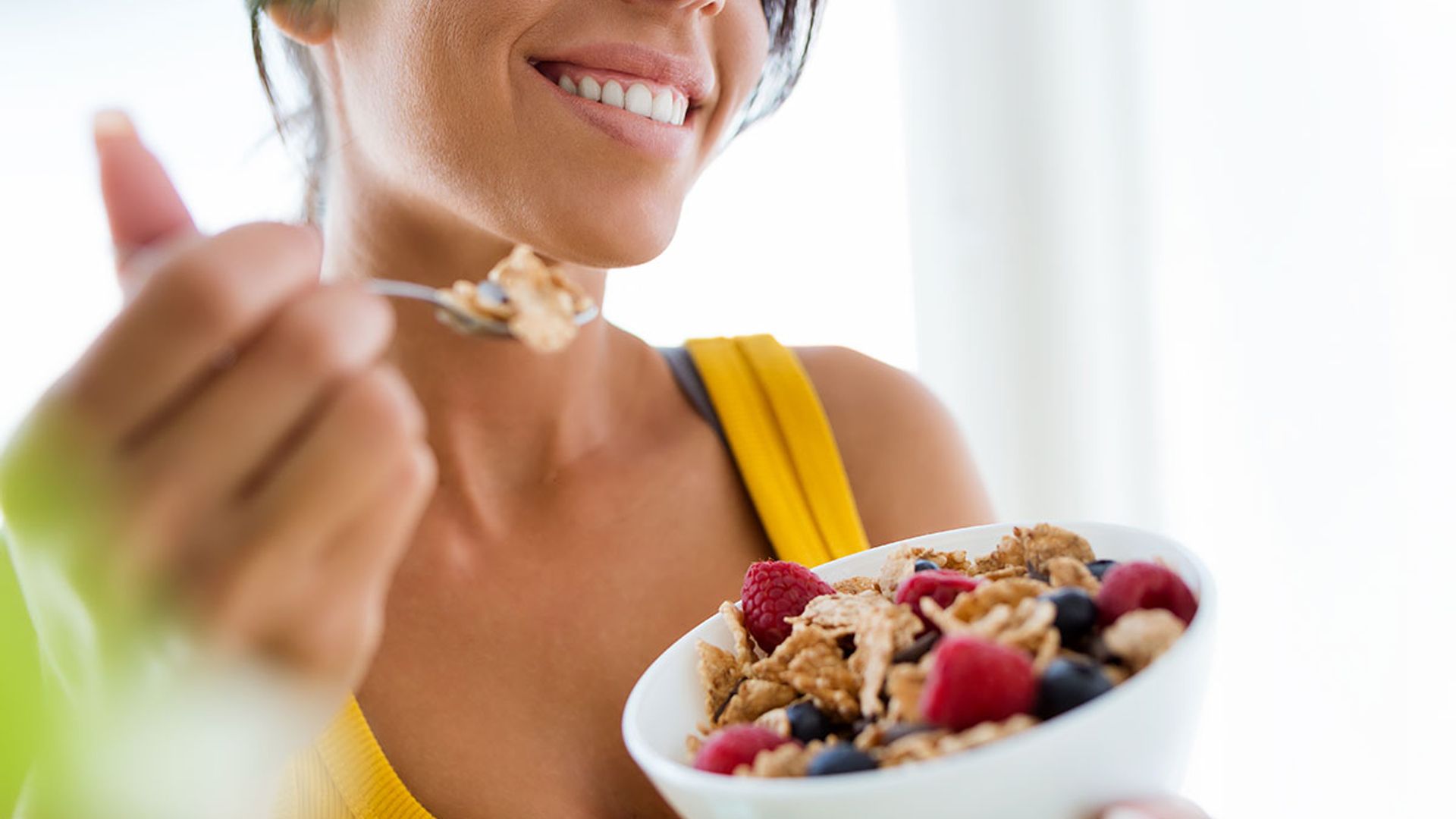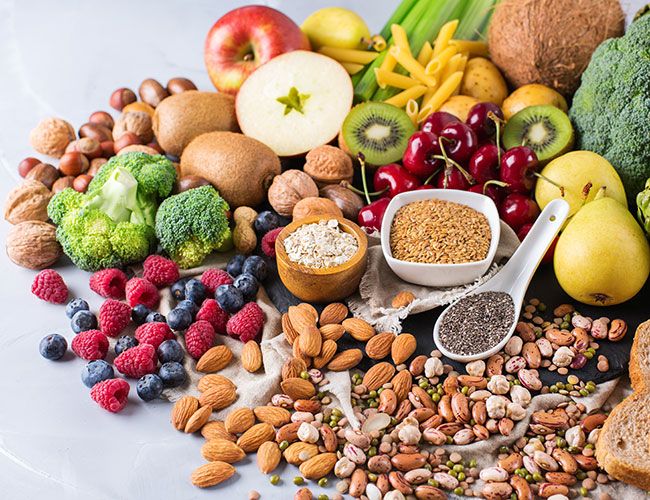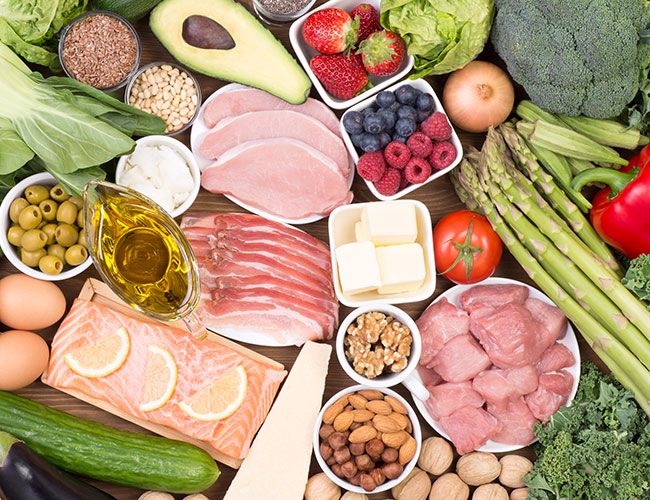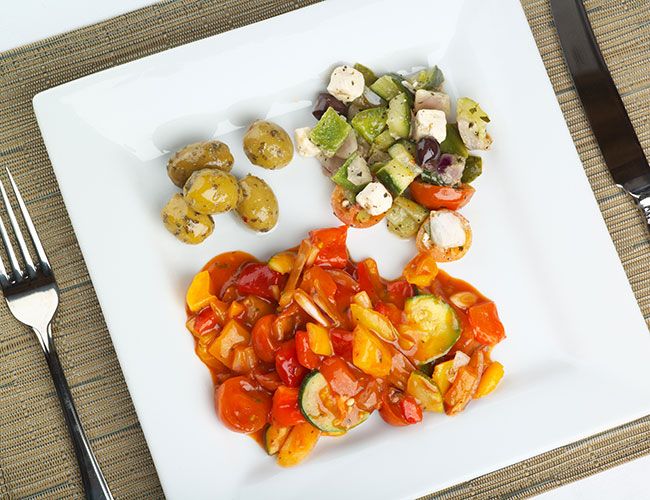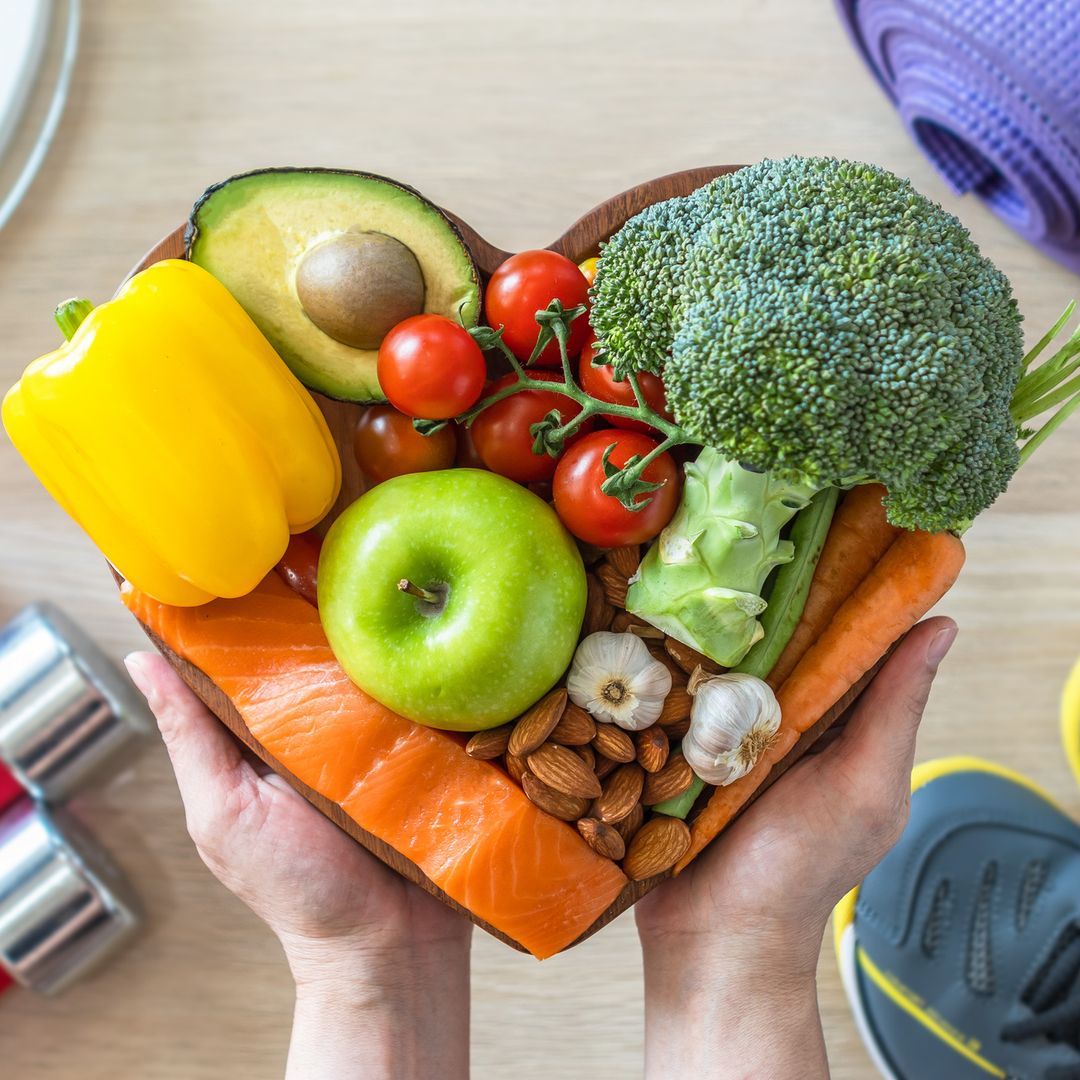Have you failed your 2019 new year's resolutions already? Join the club. As of now, we're saying goodbye to fad diets and saying hello to working out what diet lifestyle is healthy, easy to implement and really works. Below we've rounded up the five diets that are set to be huge in 2019: the 5:2 Diet, the Paleo diet, the Keto diet, the Nordic diet and the Mediterranean diet. For each we explain how to follow them and asked a range of expert nutritionists what the pros and cons are of following them. Will any work for you to get you feeling fabulous?
Paleo Diet
What is it?
The premise of the Paleo Diet is that you go back to your ancestral diet. In simple terms this means that you eat natural, whole foods and avoid anything processed. The diet typically includes the likes of lean meats, fresh fish, fruits, vegetables, nuts and seeds — foods that would have been available to hunter-gatherers in the past.
Pros?
"There is no calorie counting on this diet which makes it easy to follow and often weight loss follows once the diet is properly implemented", says Nutritionist Resource Member, Jane Snooks. "By eating a diet such as Paleo, it makes us more conscious of how much of our food is processed and how we can adapt to include more raw and unrefined foods in our diets".
Cons?
"The Paleo diet excludes a lot of food groups such as dairy, legumes, grains and beans, all of which can provide a multitude of nutrients and may leave some dieters deficient", she warns. "It also includes a plentiful supply of meat which can not only prove expensive but, as more and more evidence is showing, a move to more plant-based eating and cutting down consumption of animal products can be hugely beneficial for your health. This is certainly not a diet for vegetarians or vegans!"
"I think we have evolved as humans in many ways since hunter-gatherer times", she continues, "and as our food supplies have adapted, so have our bodies to them".
READ MORE: See what 'foodie' Meghan Markle eats in a day
Keto Diet
What is it?
The Keto Diet is all about eating a diet based around high-fat and low-carb foods. The idea is that 75% of your daily calories are made up of fats, 20% are made up of proteins and just five % are made up of carbohydrates. This eating system actually triggers a metabolic state in your body known as 'ketosis'. This is a process where your body starts burning fat rather than carbohydrates for energy because it's simply not receiving enough of them. When the body can't get energy from carbs, it converts fatty acids into ketones which are an alternative source of energy. Ketones reduce your appetite and spur weight loss among other things.
Pros?
"Dieter's feel motivated by quick weight loss and decreased appetite as the high fat keto diet makes them feel satiated, leading to less food craving," says Dora.
Cons?
However, "the keto diet isn't very balanced. It's very low in carbohydrates which can cause low blood sugar lows leading dieters to feel very uncomfortable, or suffer headaches, flu-like symptoms, sugar cravings and muscle cramps".
"The diet is also low in protein which can cause muscle loss", she continues. Most of the energy from this diet comes from fat which isn't the way the body likes to work. And the amount of vegetables is low in this diet resulting in lower vitamin, mineral and fibre intakes which could contribute to poor health and sluggish digestion".
RELATED: The small things you can do every day to be healthier in 2019
5:2 Diet
What is it?
The 5:2 Diet follows the idea of intermittent fasting. It works like this: for two days of the week you only consume a certain amount of calories - 500 for women and 600 hundred for men. The rest of the week, you can eat the normal recommended amount of calories, 2000 for women and 2500 for men. No food is off limit during any part of the week, you just can't go over the set calorie count on your 'fast days'.
Pros?
"You cut calories without being on a diet all week which makes it a more achievable diet," says Nutritionist Resource member and founder of Nutriheal, Dora Walsh. "It's also flexible in terms of when you schedule those two fasting days and you can build it up by just starting with one fast day and then adding a second".
Cons?
"Fasting doesn't come easily to many people and it can be tough to do at the start with some experiencing headaches and fatigue due to low blood sugar", warns Dora. "There are also no food restrictions at all which means some people continue to eat unhealthily for 5 days out 7. So although they are following the diet completely they might not actually achieve any weight loss at all because they are consuming too many calorie laden unhealthy foods throughout most of the week".
READ MORE: 9 Celebrity vegans: All the stars who lead a plant-based diet
Nordic Diet
What is it?
The Nordic diet is based on the traditional diet of the Nordic countries: Denmark, Finland, Norway, Iceland, Sweden, and Greenland. A little like the Paleo diet, in that they encourage you to eat like people who came before us, the Nordic diet is loosely based on what a Viking would eat. It's about having plenty of vegetables and fruit, choosing whole grains, choosing fish over meat where possible, filling up with legumes and nuts, cooking from scratch and avoiding processed foods.
Pros?
"The Nordic diet has been shown to lower blood pressure", says Gabriela Peacock, leading Grace Belgravia nutritionist, "as well as increase good cholesterol, and decrease inflammation levels in the body. It's regarded as being good for the environment too!"
Cons?
However Jane Snookes says that although "there is not much bad to say about the Nordic diet, buying all food organically can rack up a hefty food bill. If you buy anything organic", she continues, "I would choose meat and dairy products and fruit and veg with very porous skins (or no skin) - like berries, spinach, peaches etc".
"This diet also advocates the use of canola oil - but I would always use extra virgin olive oil instead as canola oil can often be more processed and may even contain hydrogenated fats which is counterproductive to the benefits of this diet in terms of health".
READ NEXT: Denise Welch reveals how she maintains 2 stone weight loss and how it's changed her life
Mediterranean Diet
What is it?
The Mediterranean diet is about eating how they do in the Mediterranean. In general, it's high in vegetables, fruits, legumes, nuts, beans, cereals, grains, fish, and unsaturated fats such as olive oil and it usually includes a low intake of meat (limiting red meat to 2-4 times per month and poultry twice per week) and dairy foods. You're even allowed wine in moderation on it!
Pros?
"There is some great research on the health benefits of this diet with apparent reductions in incidences of cancer, Parkinson’s and Alzheimer’s as well as reduced risks of cardiovascular problems and reductions in cholesterol", says Jane Snooks. "The food on this diet is easy to buy in supermarkets and easy to prepare generally".
Cons?
"Be conscious that the Mediterranean way of living usually involves families making all their food from scratch - including bread and pasta", she continues. "Shop-bought bread and pasta is often highly processed and can contain lots of additives. The diet is not good at giving specifics and one person’s understanding of ‘low to moderate’ consumption for example, may different to the next person’s. I tell clients to keep animal proteins to the size of the palm of their hands and a portion of whole grain carbohydrates is the size of their fist - follow this and you are unlikely to overindulge".
READ MORE: 11 of the best wellness apps to keep your New Year's resolutions on track
